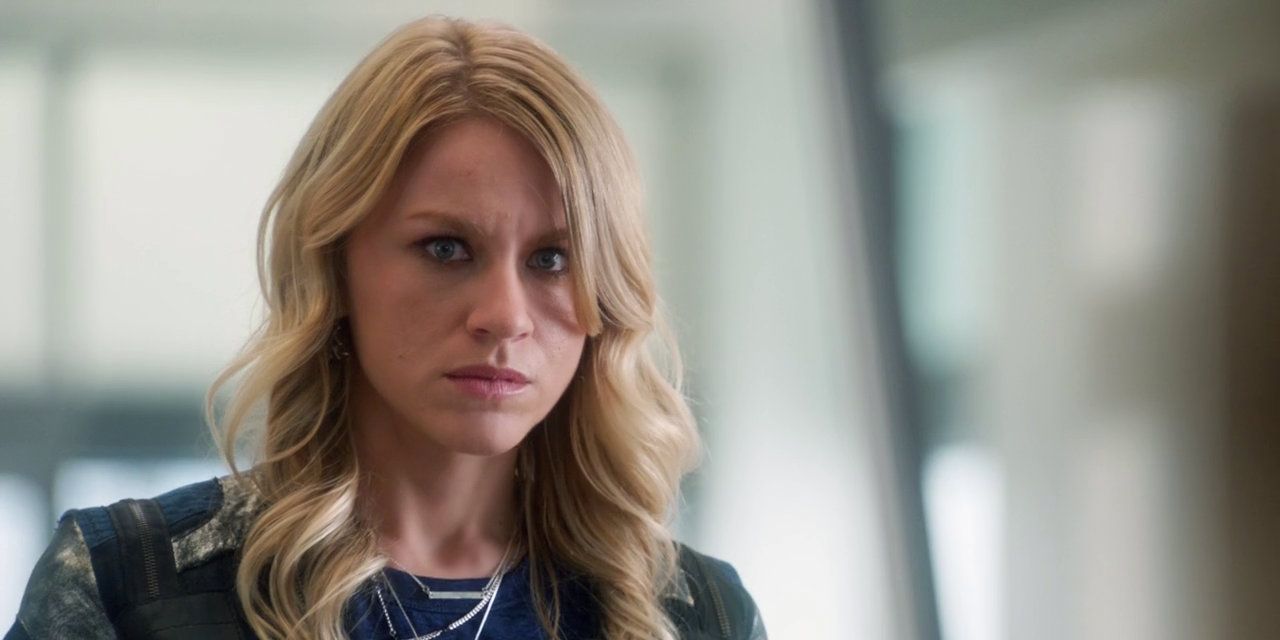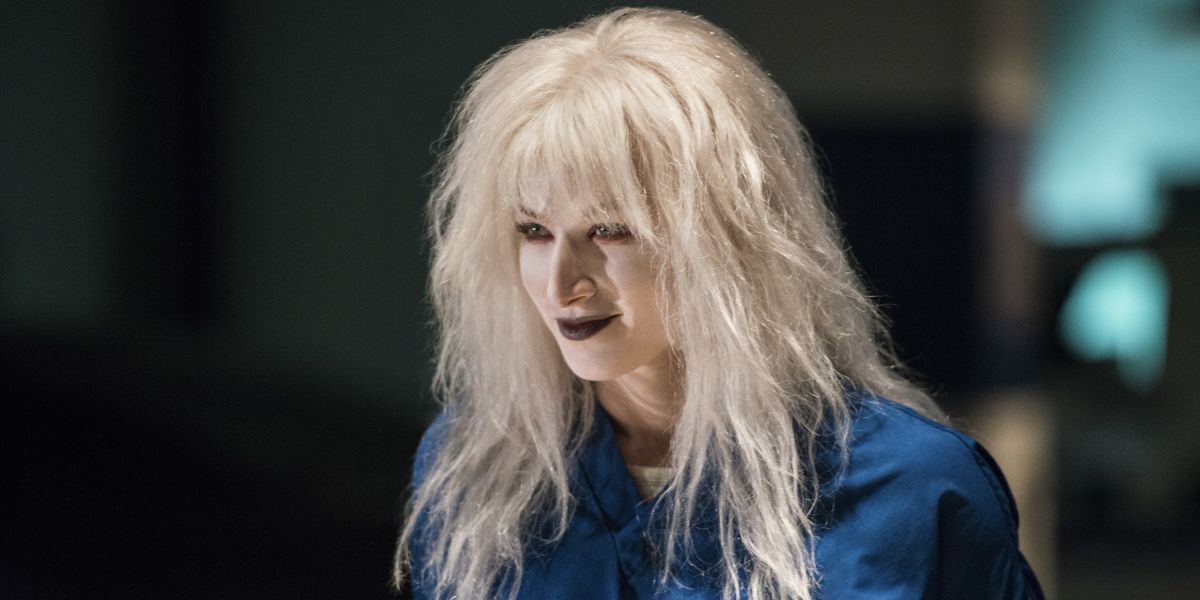This article includes SPOILERS for Supergirl Season 3: Episode 11.
Supergirl has been rocked by the death of Livewire, but the villain didn't really need to die. We explore what the show could have done.
Nothing brings out the creativity in a Superman Family property than needing to figure out new reasons for its nearly all-powerful main character to not be able to solve a problem easily - or at all. Even Kryptonite, the superhero "one weakness" from which all others descend in an unbroken line, didn't exist until the actor who voiced Kal-El on the 1930s Superman radio serial needed to take a week off. Supergirl generally doesn't lack for villains or obstacles that can keep Kara in a tense situation, but the old need to find an extra complication rears its head none the less whenever it's time to force the Girl of Steel to do what she likes least: ask for help.
Related: Supergirl Puts Lena Luthor in Danger in ‘For Good’ Trailer
As such contrivances go, "Fort Rozz" has a doozy. The only person who might be able to offer information about how to defeat Season 3 big bad Reign is a Kryptonian priestess still jailed in Fort Rozz, the alien prison whose unplanned-emptying on Earth kick-started the series back in Season 1 and which Supergirl tossed into deep space many adventures later. At least they know where it is, but there's a pair of catches. It's in orbit around a blue sun, which will neutralize Kara's superhuman abilities, but it's also in a particular zone of space that's uniquely poisonous to men - meaning that Mon-El and Martian Manhunter (her most reliable backup) can't go with her. Instead, she has to assemble a haphazard support team consisting of Saturn Girl (aka Imra, Mon-El's wife - so, awkward) and a pair of conscripted villains in Livewire and Psi.
It's a fun gimmick for an episode, crossing the always reliable conceit of breaking into a place everyone else wants to break out of with an all-super-female riff on 48 Hours that makes fun use of the opportunity to play Livewire's angry-punk affect against Psi's erudite sociopath routine. The function in the broader season-arc is somewhat ham-fisted in its obviousness (Kara recommitting herself to villain-rehabilitation versus Reign's judge/jury/executioner approach), but good dynamic is a good dynamic. Sadly, it doesn't last... mainly because Livewire ends up sacrificing herself to absorb one of Reign's energy-attacks. The moment plays as genuinely poignant, largely because we'd just spent an episode being reminded how different an energy the electricity-powered villain brought to her guest spots - and how much they'll be missed now.
The fact is, Supergirl isn't a series that lacks for humor or heart, but what it occasionally could use more of is a little acidity in with all the sugar. Even among the reflexively-cuddly CW DC series (where even the grim gang at Arrow aren't averse to hugging it out when necessary) Supergirl is the most earnest one - it sort of has to be, given that Melissa Benoist's interpretation of Kara has by now solidified into what is effectively a humanoid Care Bear with the (hypothetical) power to move the world into whatever position she wants. That's good for the 90% of the time when the series is serving as the superhero "happy place" so valued by much of its fandom, but a little bite and sarcasm can be a welcome change of pace to that kind of energy - and that's what Livewire provided when she turned up.
Not that she was the only one capable, granted. While much of the discourse over the character centered on the refreshingly ordinary portrayal of a lesbian relationship in a family-friendly superhero series, Floriana Lima's now-absent Maggie Sawyer also served a vital role as Supergirl's go-to cynical, sarcastic comeback whenever such was needed throughout Season 2 - and without her presence, the series has been hurting for someone to deflate all the perkiness once in a while. The other semi-regular sources of such, like Livewire herself, tend to be bad guys; i.e. not a regular feature of the recurring cast. Lena Luthor's ongoing storyline is about her persona becoming more akin to Kara's sunniness, not less. Cat Grant likely won't be back until sweeps or the season finale. Wynn and haughty newcomer Brainiac-5 are good for up-tempo bitterness, sure... but Supergirl is about its women - female cheer needs female sneer.
Related: Will Supergirl Run Out of Female DC Villains?
That's not to say that Supergirl needs to reject the upbeat optimism that was it's founding principal in Season 1 and made it an unlikely but unique banner-carrier for "The Resistance" in Season 2 (where a Presidential running-subplot clearly planned in anticipation of a Hillary Clinton victory had to rework itself for a world of feminism in the age of Trump), but it could definitely stand to have someone for Kara to play off of on when the scene calls for something other than fury (Reign) or support (Alex, Lena.) For lack of a word, she could use a "bitter buddy" - especially since Season 3 seems bound and determined to keep leaving her as the bachelorette among friends forging deeper connections (Lena hooking up with James, Alex playing stepmom to Ruby, J'onn and his father, the whole mess with Mon-El).
The specific setup/punchline dynamic Brit Morgan brought to Livewire's interactions with Kara were on full display throughout "Fort Rozz," spotlighting how much material there is to be mined from seeing Kara field bitterness from an opponent with a more down-to-Earth disposition than the more powerful nemesis she normally rebuffs barbs from. Sarcastic but also low-key self-righteous, the former Leslie Willis' exasperated irritation at Supergirl's perpetual goodie two-boots act (must be easy to be "up" when you're basically a god) probably mirrors the reactions of more of the audience than would care to confess it. To lose her almost immediately after establishing what a useful semi-regular she could be feels almost unnecessarily cruel - which, sure, was probably the entire point.
Even still, a recurring character feeling like a significant loss mainly because of an episode's worth of interplay does serve to expose the need for a such a character to exist more consistently within the series' overall dynamic. If the overall point of the twist was (within the plot proper) to expose to Kara that her enemies may be more of a beneficial presence than she'd thought (the episode ends with her showing new sympathy for Psi's status as a DEO prisoner), it was a feeling Supergirl fans were left acknowledging as well.
Next: Supergirl: The Great Disaster Could Now Be Part of The Arrowverse
Supergirl continues next Monday night, January 29, with ‘”For Good” on The CW.



